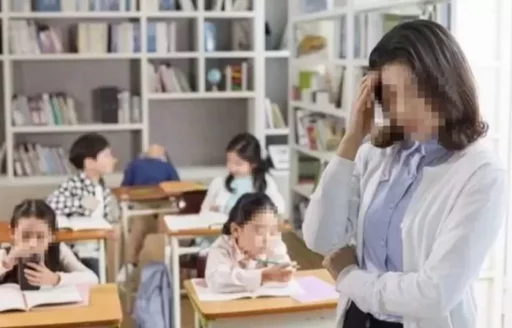Supreme Court's Judgment: Teacher's Sarcastic Remarks Not Considered Child Abuse
The Supreme Court has ruled that it is difficult to classify a teacher's remarks made in a sarcastic manner towards an elementary school student, who was being disruptive by not following instructions in class, as child abuse.
According to the legal community on the 10th, the Supreme Court's First Division (Chief Justice Ma Yong-joo) recently overturned a lower court's decision that had suspended the sentence of a fine for elementary school teacher A, who was charged with violating the Child Welfare Act (child abuse), and sent the case back to the Gwangju District Court.
The Supreme Court expressed its position that it is hard to deem the teacher's inappropriate remarks as child abuse.

The incident occurred in May 2022 at an elementary school in Gwangju.
When student B, a fourth grader, did not follow the instruction to put his cellphone in his bag, A confiscated the cellphone. When B reacted irritably by banging his desk, the teacher made a sarcastic remark, "There isn't a more disrespectful XX than this," which was overheard by other students.
A was prosecuted on the suspicion that this remark constituted emotional abuse.
Inappropriate Remarks During Educational Measures, No Intent of Child Abuse
The first and second trials both suspended a fine of 500,000 won against A.
The second trial court ruled that A's behavior constituted "emotional abuse that objectively deviates from the purpose and scope of discipline, and poses a risk of hindering the mental health and development of the affected child."

However, the Supreme Court presented a different view.
While acknowledging that A's remarks were inappropriate and could cause discomfort to the student, the Supreme Court concluded, "It is not possible to determine that this alone amounts to emotional abuse that significantly impairs or poses a risk of impairing the mental health and development of the affected child, nor can it be proved that there was an intention to emotionally abuse the affected child."
The Supreme Court also noted that A had no intention of demeaning the affected child's personality.
Rather, it suggested that "this might have been an attempt to emphasize that the affected child’s behavior was a serious violation of rules and etiquette while trying to logically calm him down in a situation where he was unable to control his emotions, or it could have been close to a soliloquy or complaint stemming from the realities and difficulties in the educational environment."
Image source: Reference photo for understanding the article / gettyimagesbank


